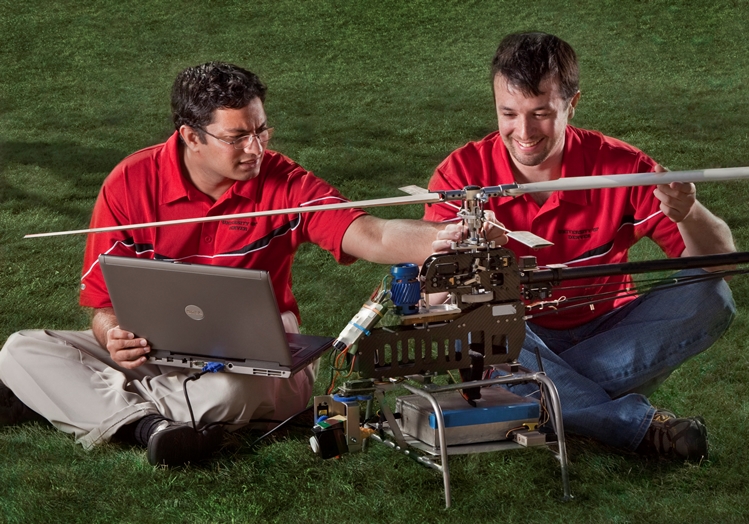Research
The Institute’s research and development activities promote knowledge and education in unmanned systems, contributing to: the advancement of higher education; benefiting students, researchers, scientists, engineers and practitioners; advancing the state-of-the-art in unmanned systems. R&D activities push forward the frontiers of unmanned systems leading to the next generation of fully autonomous unmanned ground vehicles (UGVs), unmanned aerial vehicles (UAVs) and unmanned underwater vehicles (UUVs).
The Institute’s multidisciplinary and interdisciplinary research activities span across Engineering and Science disciplines requiring innovative concepts and ideas from robotics and automation, computational intelligence, soft computing, generalized system theory, integrated control and diagnostics, distributed intelligence multi agent systems, theoretical computer science, and physics.

The Institute has unique expertise and in-house capabilities to model, design, build, test and evaluate complete and fully functional unmanned system prototypes, ready for commercialization. On-going projects include:
- Design, modeling and development of a next generation, Class I autonomous unmanned rotorcraft featuring:
- Autonomous take-off and landing
- Fault-tolerant navigation controller with emergency landing capabilities
- An integrated on-board sensor suite and pluggable software / hardware
- Sense-and-avoid RADAR-based sensor system
- On-board Vision system
- Custom-made landing gear
- Advanced nonlinear controller design for aggressive flight, Hardware-in-the-loop testing and evaluation for unmanned systems in small form-factor microprocessors
- Design and development of mobile, autonomous, self-leveling landing platforms for Class I unmanned rotorcraft (patent pending)
- Design, modeling, test and evaluation of scalable sense-and-avoid systems for mid-air collision avoidance, with simultaneous detection and identification capabilities (patent pending)
- Decentralized, multi-robot team formation control and communication
- Full life-cycle controller design, verification and validation: from MATLAB to Printed Circuit Board (PCB)
- Distributed intelligence systems: decentralized control, communication and trustworthiness
- Design, modeling and development of autonomous UGVs and UUVs

 D5 Creation
D5 Creation